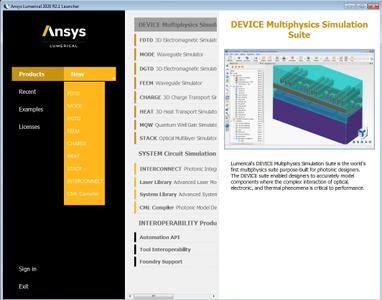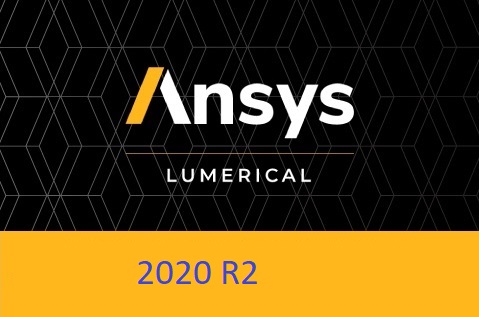ANSYS Lumerical 2020 R2.1 x64
ANSYS Lumerical 2020 R2.1 x64 | 1.3 GB | Language: English
The Lumerical development team is pleased to announce the availability of Ansys Lumerical 2020 R2.1. This comprehensive software suite provides a comprehensive set of tools for the design and analysis of integrated photonic components and systems, similar to the traditional electronic design automation (EDA) environment.
Ansys has acquired Lumerical, the leader in high-performance silicon photonic simulation. The acquisition of Lumerical will enable Ansys customers to predict light's behavior within complex photonic structures and systems. Ansys provides a comprehensive solution for semiconductors and high-performance electronics, and with the acquisition of Lumerical, we are extending Ansys' capabilities to address the challenges of the photonic industry.
Silicon photonics is an expanding market and Lumerical provides a comprehensive set of tools for the design and analysis of integrated photonic components and systems, similar to the traditional electronic design automation (EDA) environment. Lumerical complements Ansys SPEOS by serving as a de facto light source for predicting the illumination and optical performance of systems such as interior automobile lighting.
Founded in 1970, ANSYS employs nearly 3,000 professionals, many of whom are expert M.S. and Ph.D.-level engineers in finite element analysis, computational fluid dynamics, electronics, semiconductors, embedded software and design optimization. Our exceptional staff is passionate about pushing the limits of world-class simulation technology so our customers can turn their design concepts into successful, innovative products faster and at lower cost. As a measure of our success in attaining these goals, ANSYS has been recognized as one of the world's most innovative companies by prestigious publications such as Bloomberg Businessweek and FORTUNE magazines.
Product: ANSYS Lumerical
Version: 2020 R2.1 *
Supported Architectures: x64
Website Home Page :
/
Language: english
System Requirements: PC **
Size: 1.3 Gb
Lumerical CHARGE 3D Charge Transport Simulator
Lumerical FDTD 3D/2D Maxwell's Solver for Nanophotonic Devices
Lumerical DGTD 3D Electromagnetic Simulator
Lumerical STACK Optical Multilayer Simulator
Lumerical FEEM Waveguide Simulator
Lumerical HEAT 3D Heat Transport Simulator
Lumerical INTERCONNECT Photonic Integrated Circuit Simulator
Lumerical MODE Waveguide Simulator
ANSYS Lumerical Software supports the following operating systems (64-bit editions only):
- Windows 8.1, 10
- Windows Server 2012 R2, 2016, 2019
Lumerical software supports the following technologies:
- Amazon EC2
- Microsoft Azure
- HPC network technologies including: Infiniband, Myrinet, Gb and 10Gb Ethernet
- MPI frameworks: Microsoft MPI, MPICH, OpenMPI, IntelMPI and other
- commercial MPI distributions
- HPC schedulers: SGE, PBS Pro, OpenPBS, Platform LSF, HTCondor, etc.
Lumerical software has limited support on other operating systems that are known to be compatible with the supported systems listed above such as Fedora and Open SUSE.
Lumerical's Finite Element IDE (FE IDE) uses a 3D rendering and visualization library that requires a compliant implementation of OpenGL 2 or DirectX 11. For optimal performance, please install the FE IDE directly on a locally accessible host computer with adequate graphics resources and up-to-date graphics drivers. The FE IDE has limited support on systems without compliant graphics drivers, including virtual machines and remote desktop interfaces.

DOWNLOAD LINKS:


